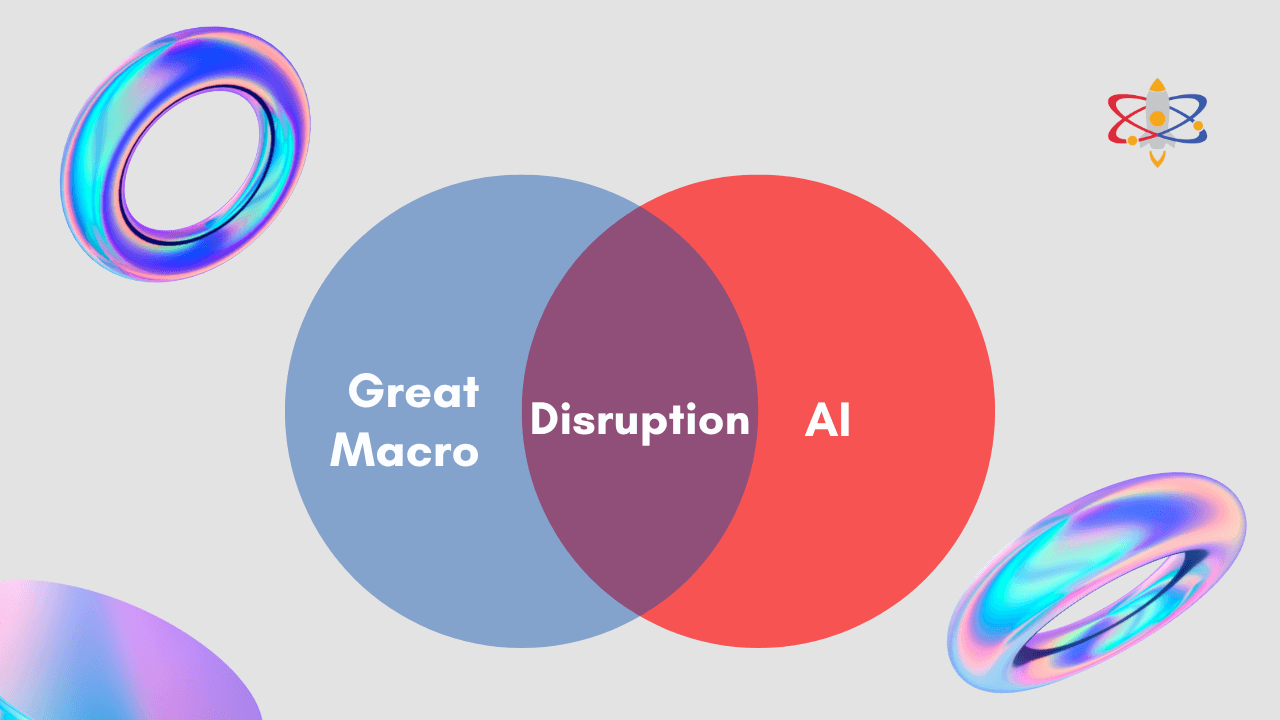The best time to startup is now
Dec 27, 2022
By Big Bang Talent

2023 is going to be a tough year for tech workers yet it’s the single best time to join a startup ever since iPhone launched the mobile platform. The combination of the current economic environment and the emergence of easy and useful AI is creating the perfect backdrop for “The Innovator's Dilemma" to unfold over the coming years. It seems increasingly likely that in 2023 we’ll see demand destruction for tech workers at current compensation levels. It’s going to be a bumpy ride working in tech but those who have the staying power and join startups will have the probabilities in their favor for a very rewarding outcome.
A macro environment that favors Startups
Public Tech Companies’ new operational context will handicap their ability to innovate:
The timeline view they have to take will prioritize short-term (quarterly) over long term
There is significant pressure to stop pursuing costly “moonshots” that may or may not yield a return
PE firms will step in and maximize efficiency, not innovation
Big Tech
In Clayton Christensen’s “The Innovator’s Dilemma” he thoroughly describes how it is possible that startups consistently disrupt and replace resource-rich incumbents. The main reason is that incumbents are captive to the context in which they operate — meaning: successful companies are unlikely to prioritize the small niche markets that disruptive technology initially serves, creating an opportunity for startups to get ahead. To stay ahead of this phenomenon big tech companies have been investing heavily in startup studios, such as Google's X. They have been able to do this at scale because shareholders have been open to high-risk/high-return projects that might pay off far into the future. However, changes in the cost of capital have changed the context in which these companies now operate. As earnings start to come under pressure, investors lose interest in high-risk, long-term projects and will increase pressure on tech companies to focus relentlessly on quarterly earnings instead. We can already see examples of this happening, such as Altimeter Capital’s open letter to Zuckerberg, which calls for substantial cost-cutting related to Meta’s big bet on VR (among other things). Big tech having to prioritize quarterly earnings and deprioritizing high-risk projects due to investor pressure will shift the success probabilities increasingly towards startups.
Small to Medium Cap Tech
If there is one thing Elon’s Twitter acquisition has shown is that it’s possible to run the company with significantly fewer people. This could also be true for many of the small to mid-cap public tech companies that have IPO’d in recent years. If this is true, it makes them prime takeover targets for PE firms. Such PE firms tend to focus on maximizing their ROI through cost-cutting and optimizing efficiency within the companies they take over. In this scenario, it’s typical that innovation and R&D spending will take a backseat.
Startups will have additional tailwinds
The operational context of startups is the opposite:
Startups don’t have to care about quarterly earnings, they focus on building toward their long-term vision
Startups are betting the house on their one moonshot and will do everything to make it happen — it’s not a side project that can be deprioritized
The new macro environment unlocks advantages in hiring and operational rigor
Where Public Tech’s context forces a focus on quarterly results, successful startups will take a long-term view as they attempt to build the future. Instead of being pressured to hit quarterly financial performance targets, they work towards business milestones without the expectation of near-term maximization of profit. Startups will have additional tailwinds in 2023 too. The hiring environment won’t nearly be as competitive which means talent will be more readily available and there will be less friction in having high expectations from employees. Also, now that the cost of capital is higher, financial discipline is paramount for survival and a non-negotiable for investors. This is a good thing because the operational rigor required to achieve this will lead to more competitive and efficient companies that will have a real shot at taking on incumbents. We’re going into a time where markets will be conquered less so by endless capital-fueled growth and more so by companies that focus on delivering value and becoming profitable.
When cycles align just right, disruption follows
Every so often it happens that different cycles align in timing perfectly, and when they do it can lead to big changes and disruption in the world. We have arrived at a time where the macro environment has shifted in favor of startups while at the same time the next big potential platform of innovation, AI, is becoming available. It turns out that we're not going to get small companies where PhDs build niche AI use cases. Rather they have built a general model that can be finetuned and built on top of by virtually everyone. Putting this powerful capability in the hands of entrepreneurs around the world will lead to an explosion of innovation while incumbents are focused on their bottom line. Good change and disruption are afoot in the upcoming years and it's likely that the near future will be exciting and wildly different.